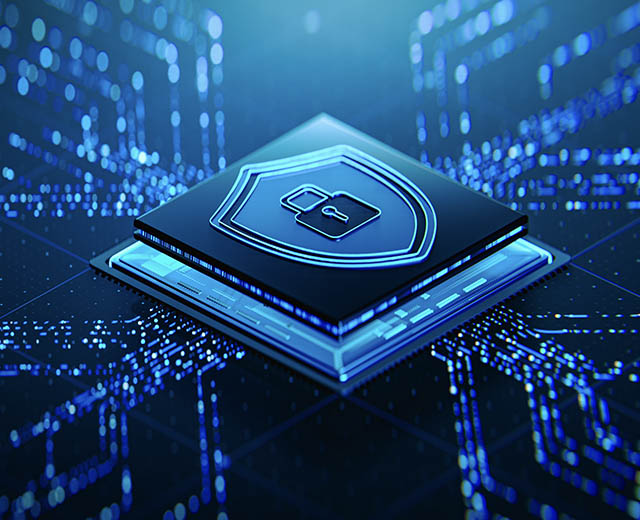In a world increasingly reliant on digital infrastructure, the threats to the security of our cyber assets have become ever more pervasive, aggressive, and sophisticated.
In February 2025, for example, a band of hackers known as the Lazarus Group, believed to be working for the North Korean government, stole $1.5 billion in Ethereum cryptocurrency. This cyber theft reveals vulnerabilities within digital financial systems and shows that even advanced blockchain security can be thwarted.
The threats, however, have gone well beyond larceny. In October 2024, a sophisticated, state-sponsored cyber espionage operation from the People's Republic of China (PRC) known as Salt Typhoon infiltrated U.S. telecommunications companies, including internet service providers—and not for the first time. These operations reflect a pattern of targeting systems and companies by the PRC to gain access to unencrypted presidential candidate communications.
The Consequences of Cyber Attacks
According to an assessment by the U.S. Intelligence Community, such attacks not only undermine trust in financial institutions, but they also fund terrorists and other global threats, disrupt economies, and “hold at risk U.S. and allied critical infrastructure,” in a bid to influence U.S. decision-making and augment the geopolitical objectives of foreign actors.
Beyond these massive, headline-grabbing breaches, cyber threats of all kinds, including malware, ransomware, phishing, and distributed denial of service (DDoS) attacks, continue to plague public, private, and non-profit organizations, exposing sensitive data, disrupting operations, and inflicting great costs in terms of money, resources, and reputation.
According to the 2025 Global Cybersecurity Outlook survey published by the World Economic Forum, nearly 60 percent of organizations report that geopolitical tensions have directly influenced their cybersecurity strategy. Seventy-two percent of respondents reported an increase in cybersecurity risks, citing ransomware and the malicious use of generative AI among their top concerns.
Defending organizations and their assets from today’s heightened security threats requires the efforts of skilled individuals with knowledge and training in protecting digital systems. This represents tremendous career opportunities for those with a master’s degree in cyber operations.
What Can You Do with a Master’s in Cyber Operations?
Organizations across a variety of sectors, including government, finance, healthcare, etc., are looking for cybersecurity professionals with the skills and hands-on experience to identify, detect, and mitigate cyber threats. A cyber operations master's degree can prepare you for advanced technical and strategic roles in cybersecurity within the field and more. Some in-demand positions include
- Cybersecurity Engineer: These professionals design and implement security systems, identify vulnerabilities, and respond to security breaches to ensure an organization's infrastructure is secure and compliant. According to ZipRecruiter, the average salary for cybersecurity engineers is about $123,000 per year.
- Penetration tester: Also known as “pen-testers” and “ethical hackers,” these highly skilled professionals simulate cyberattacks to identify and mitigate vulnerabilities before real (malicious) hackers can do damage. According to Indeed.com, the average salary for a penetration tester is around $125,000 per year.
- Network Security Architect: Designing, building, and maintaining a secure IT network infrastructure is the job of a network security architect. BLS estimates the median annual salary for computer network architects at just over $130,000.
- Information Security Analyst: A security analyst monitors systems, analyzes data, assesses threats, and implements risk mitigation strategies to protect an organization's digital assets. The median annual salary for an information security analyst is about $125,000, according to BLS.
- Software Developer: Software developers are responsible for designing, developing, and maintaining software solutions that meet user needs. Their work involves analyzing requirements, planning system architecture, and creating models and diagrams to guide coding efforts. The median annual salary for an information security analyst is about $131,000, according to BLS.
Build Skills and Advance Your Career with an MS in Cybersecurity Operations at UMGC
The online Master of Science in cyber operations degree at University of Maryland Global Campus (UMGC) is offered to give working professionals the skills they need to compete in the rewarding and highly competitive cybersecurity field. You can gain critical career skills in both defensive and offensive cyber measures using the latest tools, technologies, and processes.
The curriculum is designed to help you develop expertise in areas like malware analysis, code writing, network protection, risk assessment, information security, information systems, and reverse engineering.
"What is truly exciting about the cyber ops field and about UMGC’s program in particular, is the opportunity to learn cutting-edge technology, processes, and tools used for both offensive and defensive cybersecurity tasks,” said James Robertson, portfolio director for Cyber Operations at UMGC. “There is no better way to defend a system than to know how to attack it."
Some of UMGC's online cyber graduate courses utilize UMGC’s virtual learning lab, the Multi-Dimensional Applied Relevant System (MARS), a state-of-the-art, AI-driven cybersecurity environment where students learn by doing. Students using the MARS environment have access to the latest industry tools with which companies want their employees to have experience. Some of the tools used in UMGC’s cybersecurity classes include Wireshark, Nessus, Nmap, OWASP ZAP, and OpenVas.
This master’s program can be completed entirely online, with courses that you can access virtually anywhere in the world, delivered in a seamless, collaborative, and satisfying virtual classroom experience that prepares you for today's digital business environment. And we’ve replaced those bulky, expensive textbooks with no-cost digital course materials in nearly every course.
You can also transfer up to 12 credits toward a master's degree in cyber operations for related coursework at an approved institution. If you earned a bachelor’s in cyber operations or cybersecurity technology from UMGC within the last two years, you may qualify for an accelerated pathway that reduces graduate coursework by up to 9 credits.
UMGC has been designated as a National Center of Academic Excellence in Cyber Defense (CAE-CD) by the National Security Agency and as a Center of Digital Forensics Academic Excellence (CDFAE) by the DC3 Academic Cyber Curriculum Alliance.
"Employers will feel confident that the tools, techniques, and skills they're seeking will be covered during the program,” said Robertson. “Our long-term goal is to be CAE-CO designated. Even if you have yet to complete the entire degree, the four-course certificate provides significant knowledge and skills and a valid credential to make yourself more attractive as a potential employee." All 12 credits from UMGC's graduate certificate in cyber operations can be applied to a cyber operations master’s degree.
Your courses are taught by our faculty of highly successful and experienced scholar-practitioners, many of whom are leaders in the cyber fields. A dedicated UMGC success coach will support you throughout your academic journey in mapping out your education and career goals and assisting with class selection. And wherever you are in your career, you'll always have access to UMGC’s lifetime career services to help you in your job search and career development.
If you're someone with a strategic, analytical mind who enjoys working with computers and solving problems, a career in cyber operations could be a good fit and a rewarding way to make a positive difference in today’s data-driven workplace.
Reference on this webpage to any third-party entity or product does not constitute or imply endorsement by UMGC nor does it constitute or imply endorsement of UMGC by the third party.



